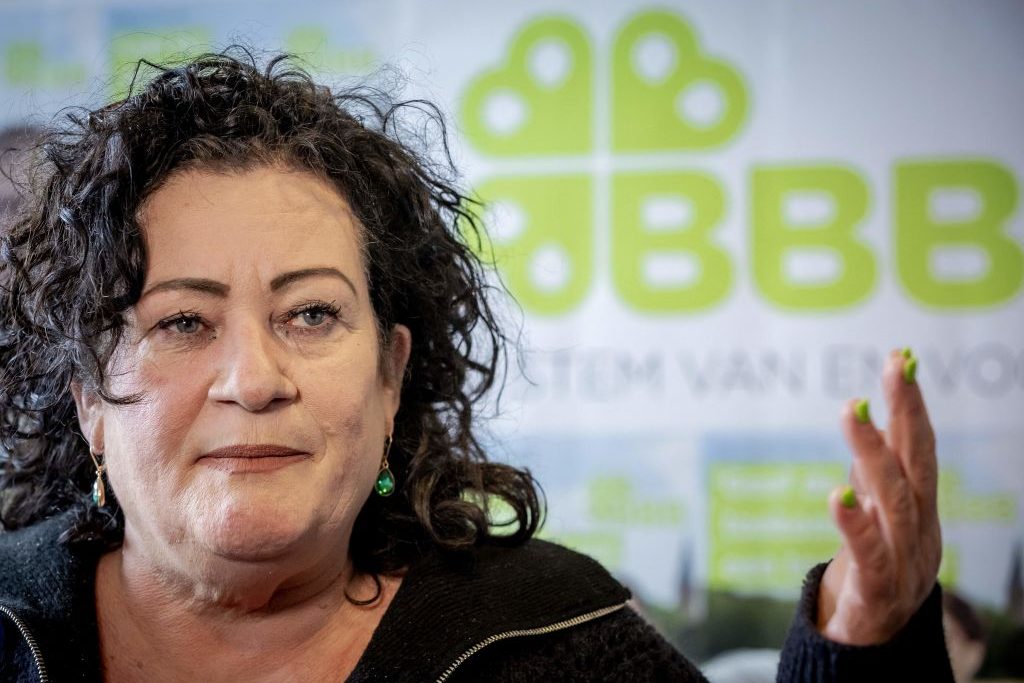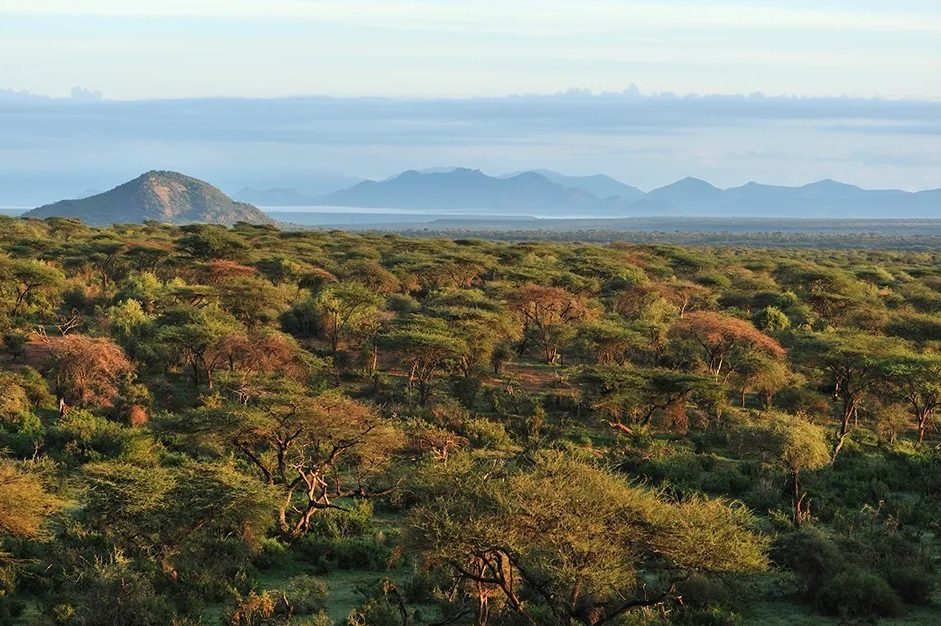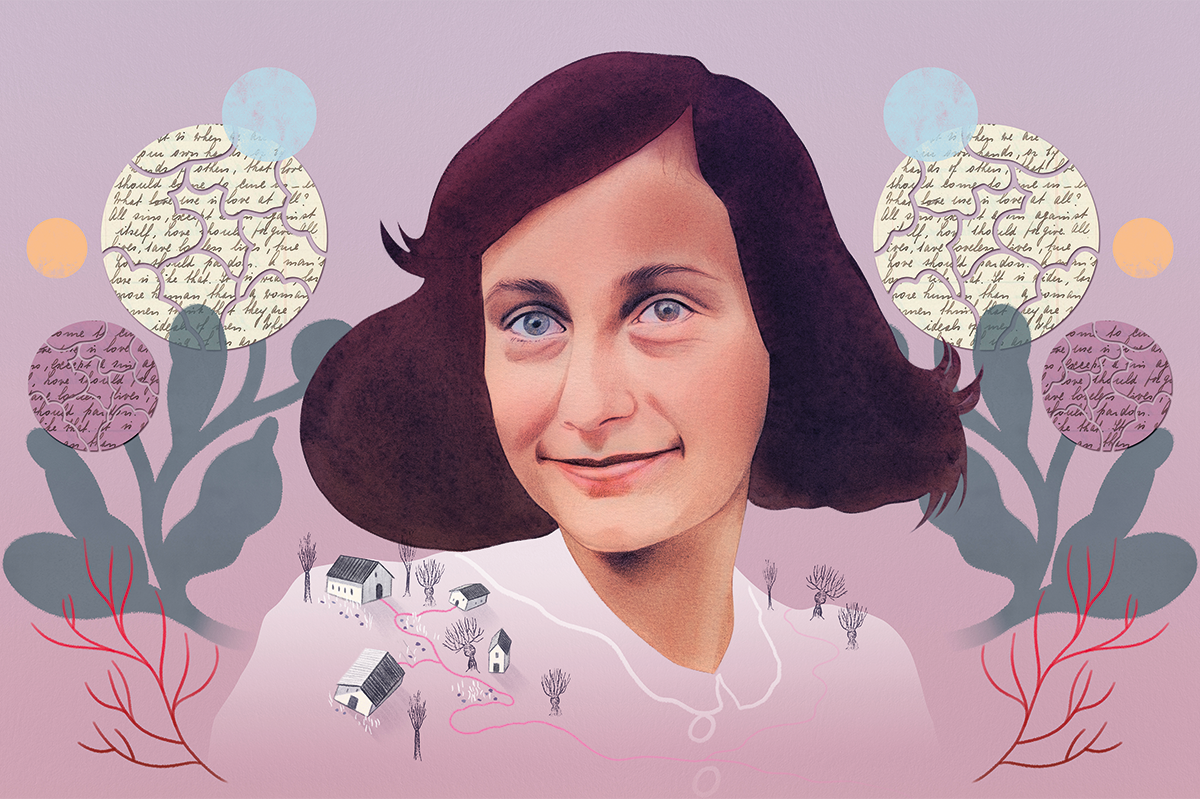There are 17.9 million residents in the Netherlands, and this year the country expects 45,000 requests for asylum. Barges, tents and sports halls are full of people waiting for their claim to be processed, while the country is suffering a housing crisis largely due to historic under-building.
Last year the country made headlines around the world when people were forced to sleep rough outside an asylum registration centre in Ter Apel, a baby died in a crowded sports hall in the town and the country’s own Médecins Sans Frontières stepped in to offer aid.
Whoever pulled the pin, some in the Netherlands are delighted at the prospect of a general election
Asylum is the issue that set off a bomb under the fourth government led by Prime Minister Mark Rutte, who late on Friday night announced his four-party coalition had collapsed. “It’s no secret that the coalition parties think very differently about asylum policy and today we unfortunately need to draw the conclusion that the differences are unbridgeable,” he said.
But other political parties and commentators were quick to say that it was probably his own party that was responsible for relations in the government breaking down. Last year, Rutte had to tackle a potential revolt in his own party shortly after the crisis at Ter Apel.
At a tense party conference earlier this year, Rutte assured his center-right VVD party that he would be tougher on limiting asylum numbers. In return, it would support a “spreading” law, which the government has been trying to pass to ensure all municipalities and regions take their fair share of refugees and asylum seekers.
In a bid to make the country no more attractive than its neighbors for immigration, in past months the VVD and the right-wing Christian Democratic Appeal (CDA) have been pushing a tougher policy to separate asylum seekers into two classes. Those from war-torn countries would get B status, as in neighboring countries. Rutte and the CDA wanted to introduce a two-year waiting period before these asylum seekers could bring family members over. Potentially also a quota.
The two other coalition parties, the liberal democratic D66 and the ChristenUnie, a small, left-wing Christian party, did not agree. This week, after two long nights of crisis meetings, Rutte announced that the differences were so great the coalition would fall on its sword. “There is no single party that pulled the plug,” he said.
But immediately others in the Netherlands’ fractionalized, multi-party system, disagreed. Party chairman of the D66 Jan Paternotte blamed Rutte himself — saying he laid extra demands on the table, especially on the issue of the children of wartime refugees. “Rutte was a premier who was always looking for solutions, not ‘my way or the high way,’ but that is what happened this week,” he said.
Attje Kuiken, party president of the PvdA (Labor Party), suggested Rutte has gained an electoral advantage by falling on the issue of migration — always a calling card for his party. “Rutte chose his own best interests above the country’s best interests, and I hope everyone sees that,” she told the Op1 television show.
Whoever pulled the pin, some in the Netherlands are delighted at the prospect of a general election, which will probably happen in November. Caroline van der Plas, leader of a new, center-right Farmer Citizen Movement (BBB) tweeted, smiling, from a sunny café terrace, “What did you look like when the government fell?”
Although she is her party’s only MP, the Farmer Citizen Movement swept to victory in provincial elections in March. It now has a large vote in the Senate and power in the regional councils, in large part due to its decision to oppose the government’s controversial pollution policy to reduce nitrogen compound emissions, mostly from animal farming.
The Netherlands experienced a rise in anti-government feeling during unpopular pandemic lockdowns and has historically low levels of trust in parliament after scandals including childcare benefits and the Groningen gas field. Support for “Caroline’s” party could be seen through the many lime-green BBB flags and upturned Dutch flags hanging around the country.
Right-wing parties such as Geert Wilders’s PVV and new far-right party JA21, plus a potential new left-wing coalition of the Dutch Green Left and Labor are flexing their muscles for a general election. The Netherlands could swing right, although it’s not impossible that it goes left. If the BBB, which is now in power in most regional coalitions, achieves a landslide in parliament, this will have huge implications for immigration, the future of farming and environmental policy.
In a country that for years was known for its stable coalitions and laudably boring politics, the tensions of major modern issues — the environment, immigration, trust in traditional institutions — have ripped up the political playbook.
“The fall of a government is never good,” Rutte said. “But it is sometimes impossible in a coalition country like the Netherlands to come to one agreement.”
Now the country faces months of campaigning, elections, then possibly months to form another coalition. In the meantime, the febrile four-party coalition will continue as a “caretaker” government, unable to make new policy on pressing issues like the environment, poverty, sorting out the scandals or, of course, immigration.
On the roads and fields, the BBB flags are already out.
This article was originally published on The Spectator’s UK website.

























